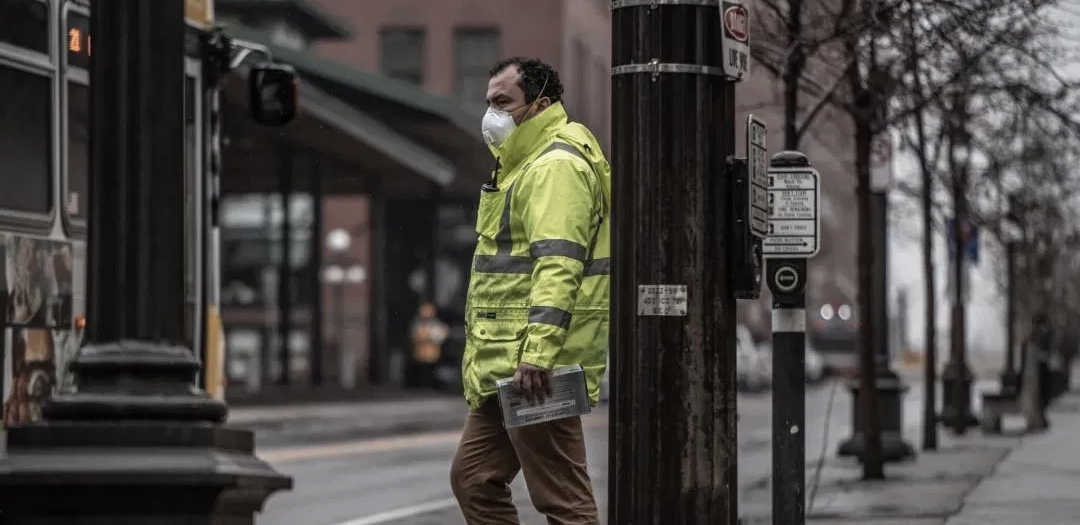Introduction
I had the opportunity to interview a local healthcare worker and Lowertown resident, who was the first known patient in the neighborhood who tested positive for COVID-19. In this interview “Susan” (name changed for privacy), talks about the symptoms and experience of the disease, the difficulty of quarantining family members living together, the wider Coronavirus crisis, and how you can support your local healthcare workers.—Nigel Parry
Q1: The first positive MN case was announced on March 6th. You noticed symptoms earlier than that. How did you think you contracted the virus?
Like most of us, I will never know for sure where I contracted the virus, but I do have direct contact with patients. My first symptoms were on March 1st, and I was tested on March 12th.
Q2: What are the symptoms you experienced, and what should people expect when they get sick? How is it different from the regular seasonal flu, how long does it last, and even assuming a person is not in a high risk category, does the disease leave any lasting or permanent effects?
Q3: Is anyone else ill in your household? How do you manage social distancing when you live with other people?
My family members living with me have been well so far. That is not uncommon from what I understand. As far as isolating myself from my family, it was not something we attempted to do. By the time my symptoms were starting to point to COVID-19, and the news was starting to become clear that it might be an issue in MN, my family members had clearly already been exposed.
We did go into quarantine as soon as I was tested. I think a lot of families are going to find themselves in a similar situation, especially if testing is not currently taking place for a majority of the population. Quarantine your family and don’t leave the house if anyone has symptoms, but isolating anyone who has symptoms from the rest of the family was not a practical solution for us. (I’m not sure how isolating symptomatic family members would work in a single family household if the parent becomes ill, for instance?)
Thankfully people are listening to the warnings and socially distancing now & quarantining when necessary. That was not happening when I first became ill – it was still business as usual.
Q4: How do you feel the city, state and federal authorities have coped with this and are coping with this?
I am a firm believer that listening to science and facts should help guide the state and federal authorities in the coming weeks and months ahead in the decisions they will be making.
Some of them may need to be redirected to science and facts more than others, but I have been proud of our response here in MN so far.
Q5: Do you have a sense of how many people will ultimately be infected by the virus, and what impact this is going to have on life as we know it? A lot of people are just now beginning to realize the likely scale of the impact of this virus.
I feel strongly that the number of people infected will depend largely on how quickly we get a reliable vaccine disseminated to the population at large, and how well we hang on to the rules about social distancing until that time comes. Each of us has a responsibility that is larger than ourselves right now. Keeping that in mind when we want to bend the rules is going to be key.
Q6: You let people know in your Lowertown building that you had been diagnosed with COVID-19. How did they react?
As far as I am aware, there has been nothing but understanding, kindness, offers of support, etc. I wanted to make it clear to them that this enemy is here. People need to be able to tell their neighbors about this if they live in dense housing like we do, without the worry of repercussions. It only serves the greater good if everyone has as much knowledge about their surroundings as they can get.
Q7: What can people do to support healthcare facilities and staff at this point?
Be patient. If you have access to one, bring your own mask if you have to be physically seen by a healthcare provider. If you start feeling ill, document how you feel, your temperature, and any medications that you take a couple of times a day and if they are helpful. Having that in writing helps things go smoothly if you need it later on for reference.
Q8: What’s the first thing you want to do when the virus has been eliminated?
Hug my mom. She has a health condition that puts her at very high risk from complications if she were to contract this virus, and there is still not clear data on whether or not I could potentially shed the virus and infect her. I’m looking forward to making-up for all the hugs we’ve missed out on.







